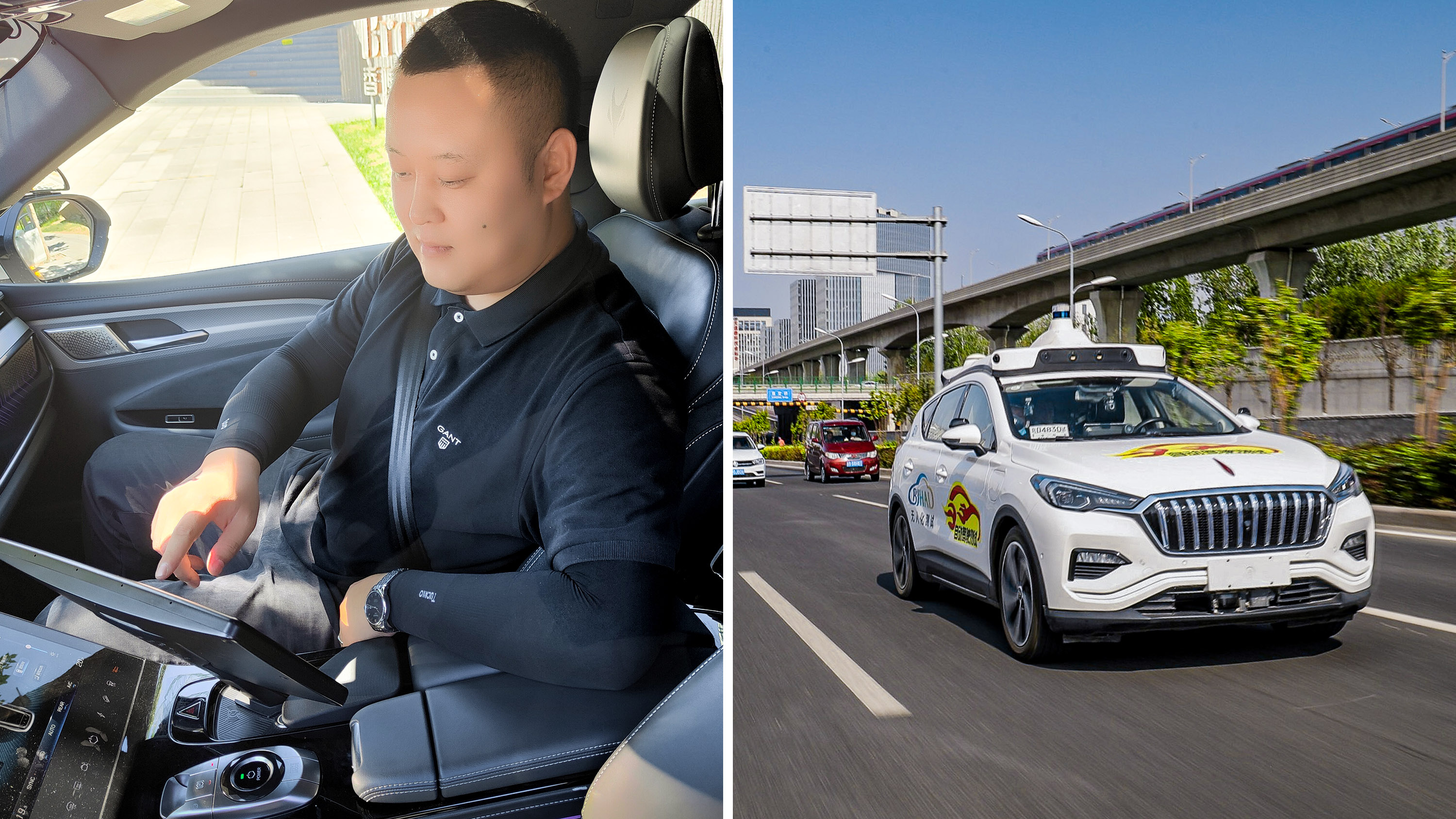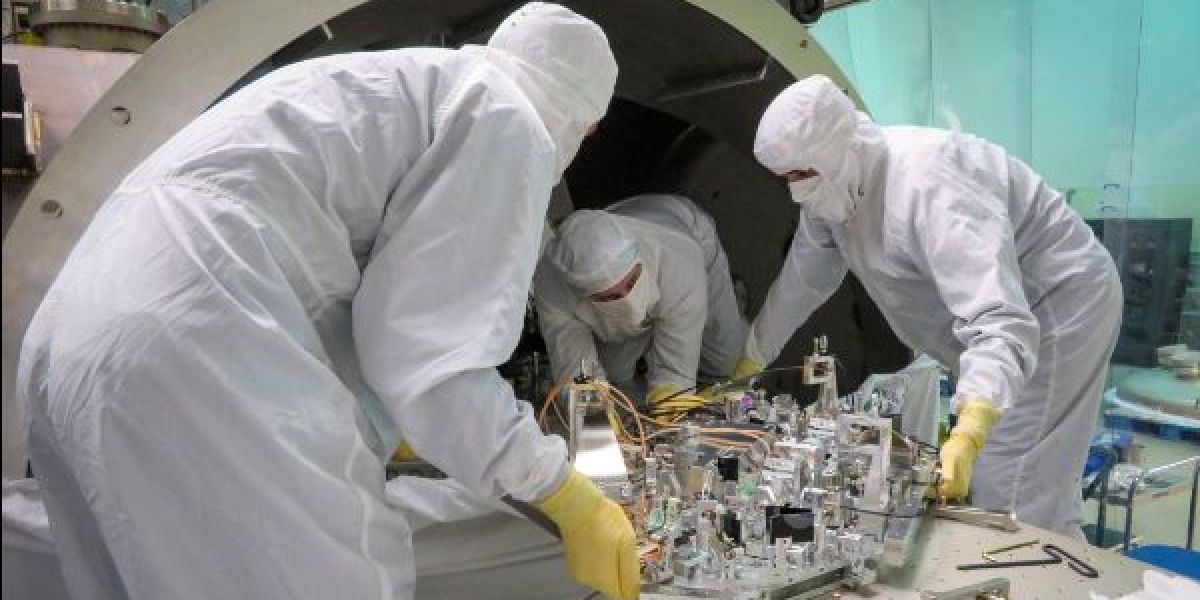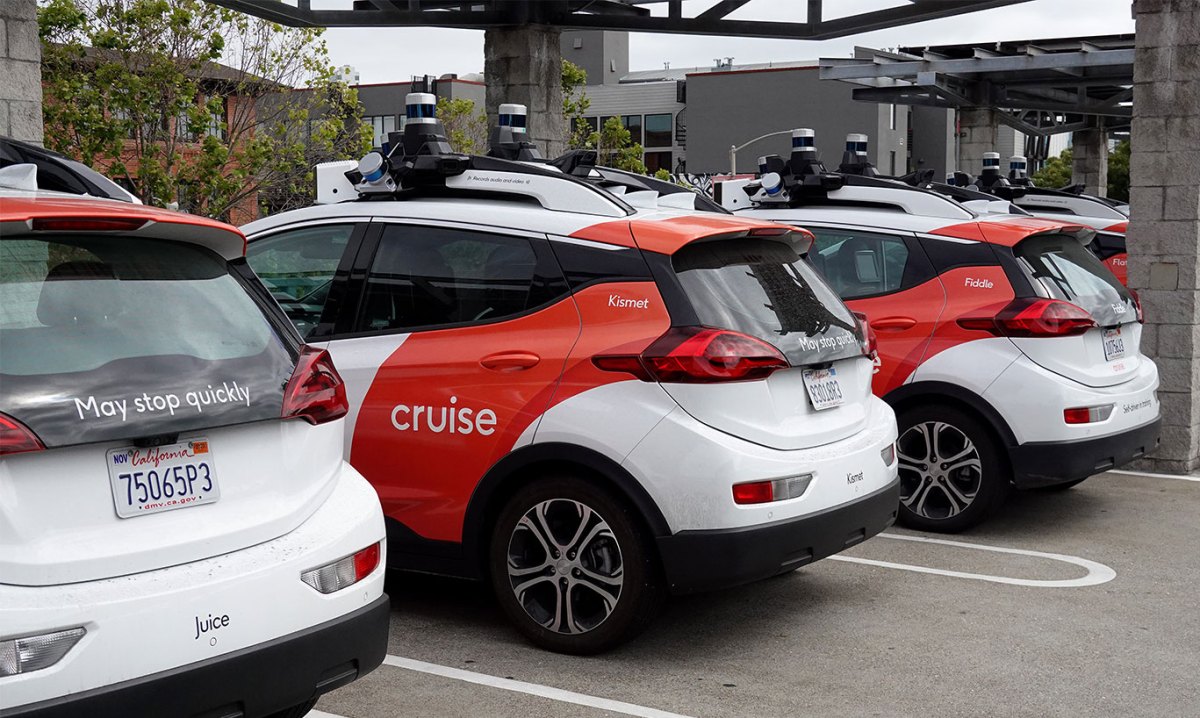The Download: quantum squeezing, and a game-building AI model
This is today’s edition of The Download, our weekday newsletter that provides a daily dose of what’s going on in the world of technology.
How scientists are using quantum squeezing to push the limits of their sensors
When two black holes spiral inward and collide, they shake the very fabric of space, producing ripples in space-time that can travel for hundreds of millions of light-years. Since 2015, scientists have been observing these so-called gravitational waves to help them study fundamental questions about the cosmos, including the origin of heavy elements such as gold and the rate at which the universe is expanding.
But detecting gravitational waves isn’t easy. By the time they reach Earth, the ripples have dissipated into near silence. Our detectors must sense motions on the scale of one ten-thousandth the width of a proton to stand a chance. And making them more sensitive is a huge challenge. Physicists say a new approach could help: quantum squeezing.
The technique could also help create more precise magnetometers, gyroscopes, and clocks with potential applications for navigation. Creators of commercial and military technology have begun dabbling in quantum squeezing, too: the Canadian startup Xanadu uses it in its quantum computers, and last fall, DARPA announced Inspired, a program for developing quantum squeezing technology on a chip. Find out more.
—Sophia Chen
Google DeepMind’s new generative model makes Super Mario-like games from scratch
The news: OpenAI’s stunning generative model Sora is pushing the envelope of what’s possible with text-to-video. Now, Google DeepMind is bringing us text-to-video games.
How it works: The new model, called Genie, can take a short description, a hand-drawn sketch or a photo and turn it into a playable video game in the style of classic 2D platformers like Super Mario Bros. But don’t expect anything fast-paced. The games run at one frame per second, compared to the typical 30-60 frames per second of most modern games.
Why it matters: While Genie won’t be released, it could one day be turned into a game-making tool. It could also potentially help advance the field of robotics. Read the full story.
—Will Douglas Heaven
Why concerns over the sustainability of carbon removal are growing
There’s a looming problem in the carbon removal space.
By one count, nearly 800 companies around the world are exploring ways to draw planet-warming greenhouse gas out of the atmosphere and storing it away or putting it to use, a gigantic leap from the five startups I could have named in 2019.
Globally, venture investors poured more than $4 billion into this sector between 2020 and the end of last year, according to data provided by PitchBook.
The trouble is, carbon dioxide removal is a very expensive product that, strictly speaking, no one needs right now. It’s waste management for invisible garbage, a public good that nobody is eager to pay for. Some climate experts even argue it’s an outright fantasy, and a dangerously distracting one at that. Read the full story.
—James Temple
This story is from The Spark, our weekly newsletter about how tech could help to combat the climate crisis. Sign up to receive it in your inbox every Wednesday.
The must-reads
I’ve combed the internet to find you today’s most fun/important/scary/fascinating stories about technology.
1 Inside the weird world of AI-generated videos
These models have gotten better at making human hands. But cats’ paws? That’s another story. (WP $)
+ Welcome to the new surreal: How AI-generated video is changing film. (MIT Technology Review)
2 Selective forgetting can help AI to learn better
This new approach could also help us to better grasp how these models understand language. (Quanta)
+ AI is creating new kinds of software bugs. (Axios)
+ Use AI tools for brainstorming. Not for truth-seeking. (WP $)
3 A Pornhub chatbot stopped people searching for child abuse videos
When people searched terms linked to abuse, a warning message popped up urging them to get help. (Wired $)
4 The US is investigating Chinese cars
It’s citing security risks, but the real fear is likely of being out-competed. (WP $)
+ The US car giants simply cannot win against Chinese automakers. (NYT $)
+ Why Apple abandoned its car project. (NYT $)
5 Tech billionaires keep buying up land on Hawaii
Much to the detriment of the locals living there already. (NPR)
6 Why recorded music never measures up to seeing it live
It’s to do with how our brain responds. (The Economist $)
7 What it’s like to use the Vision Pro for a month
Honestly? It sounds kinda lonely. (WSJ $)
8 Elon Musk really wants you to know he’s never been to therapy
Bless him—as if we hadn’t figured that out already. (Gizmodo)
9 The Winklevoss twins are returning $1 billion to their crypto customers
But only after being ordered to by a judge, to be clear. (BBC)
10 Wendy’s is giving up on introducing surge pricing
Outraged people on the internet forced it to backtrack. And rightly so! (Gizmodo)
Quote of the day
“The worst part of all? There was no chocolate.”
—Father-of-three Stuart Sinclair tells the New York Times how he was one of many people duped by AI-generated ads into attending an underwhelming WIlly Wonka-themed event in Glasgow last weekend.
The big story
A day in the life of a Chinese robotaxi driver

July 2022
When Liu Yang started his current job, he found it hard to go back to driving his own car: “I instinctively went for the passenger seat. Or when I was driving, I would expect the car to brake by itself,” says the 33-year-old Beijing native, who joined the Chinese tech giant Baidu in January 2021 as a robotaxi driver.
Robotaxi driver is an occupation that only exists in our time, the result of an evolving technology that’s advanced enough to get rid of a driver—most of the time, in controlled environments— but not good enough to convince authorities that they can do away with human intervention altogether.
Liu is one of the hundreds of safety operators employed by Baidu, “driving” five days a week in Shougang Park. But despite having only worked for the company for 19 months, he already has to think about his next career move, as his job will likely be eliminated within a few years. Read the full story.
—Zeyi Yang
We can still have nice things
A place for comfort, fun and distraction to brighten up your day. (Got any ideas? Drop me a line or tweet ’em at me.)
+ Today is a leap day! Did you know that people born on leap years are called leaplings?
+ Once you’ve seen the giant chihuahua in the Dune 2 poster, there’s no unseeing it.
+ There are hardcore spinning classes, and then there’s….this.
+ Love this story about turning music into a scent. (NYT $)




